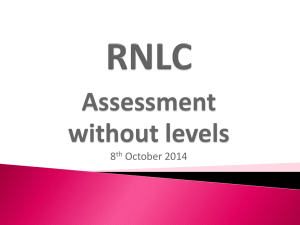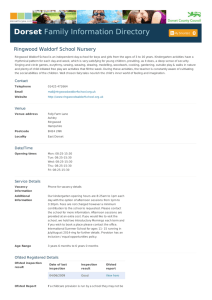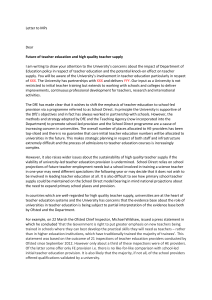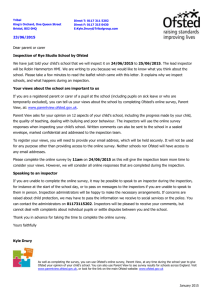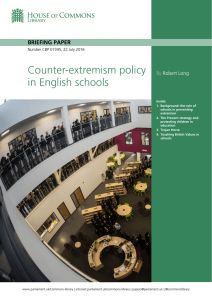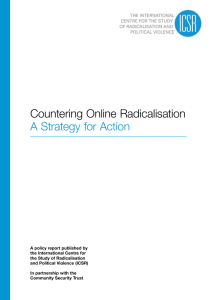PreventStrategy15
advertisement
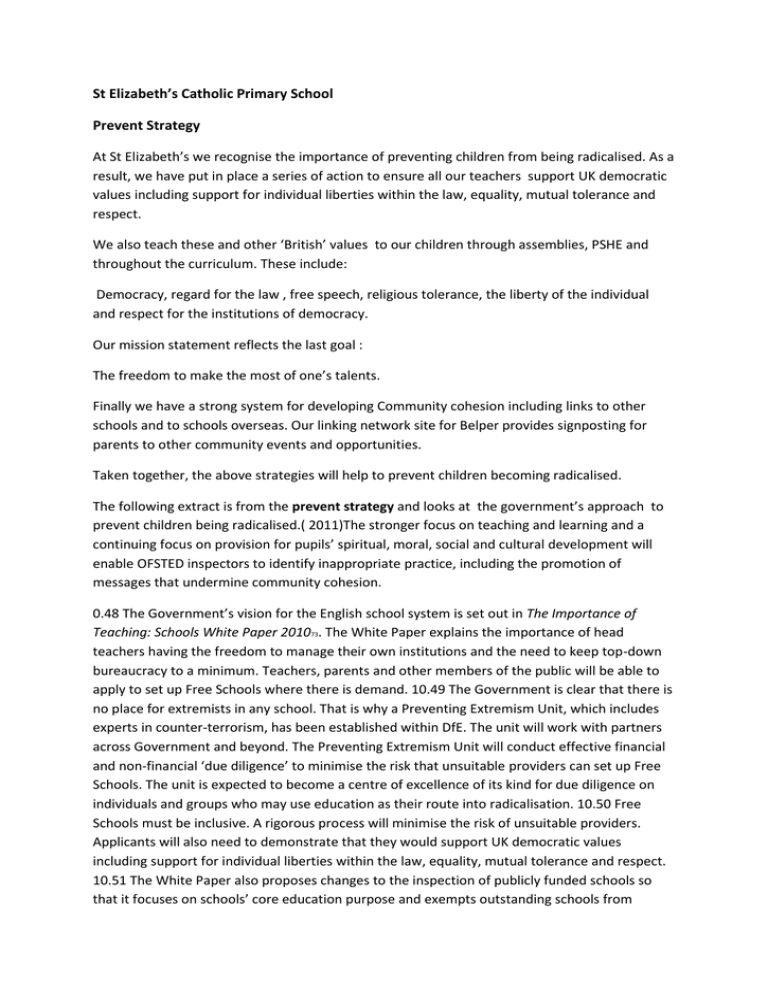
St Elizabeth’s Catholic Primary School Prevent Strategy At St Elizabeth’s we recognise the importance of preventing children from being radicalised. As a result, we have put in place a series of action to ensure all our teachers support UK democratic values including support for individual liberties within the law, equality, mutual tolerance and respect. We also teach these and other ‘British’ values to our children through assemblies, PSHE and throughout the curriculum. These include: Democracy, regard for the law , free speech, religious tolerance, the liberty of the individual and respect for the institutions of democracy. Our mission statement reflects the last goal : The freedom to make the most of one’s talents. Finally we have a strong system for developing Community cohesion including links to other schools and to schools overseas. Our linking network site for Belper provides signposting for parents to other community events and opportunities. Taken together, the above strategies will help to prevent children becoming radicalised. The following extract is from the prevent strategy and looks at the government’s approach to prevent children being radicalised.( 2011)The stronger focus on teaching and learning and a continuing focus on provision for pupils’ spiritual, moral, social and cultural development will enable OFSTED inspectors to identify inappropriate practice, including the promotion of messages that undermine community cohesion. 0.48 The Government’s vision for the English school system is set out in The Importance of Teaching: Schools White Paper 201073. The White Paper explains the importance of head teachers having the freedom to manage their own institutions and the need to keep top-down bureaucracy to a minimum. Teachers, parents and other members of the public will be able to apply to set up Free Schools where there is demand. 10.49 The Government is clear that there is no place for extremists in any school. That is why a Preventing Extremism Unit, which includes experts in counter-terrorism, has been established within DfE. The unit will work with partners across Government and beyond. The Preventing Extremism Unit will conduct effective financial and non-financial ‘due diligence’ to minimise the risk that unsuitable providers can set up Free Schools. The unit is expected to become a centre of excellence of its kind for due diligence on individuals and groups who may use education as their route into radicalisation. 10.50 Free Schools must be inclusive. A rigorous process will minimise the risk of unsuitable providers. Applicants will also need to demonstrate that they would support UK democratic values including support for individual liberties within the law, equality, mutual tolerance and respect. 10.51 The White Paper also proposes changes to the inspection of publicly funded schools so that it focuses on schools’ core education purpose and exempts outstanding schools from routine inspection. The Chief Inspector will retain discretion to re-inspect any school about which Ofsted has concerns. 10.52 Working with DfE, Ofsted will ensure that inspectors have the necessary knowledge and expertise to determine whether extremist and intolerant beliefs are being promoted in a school and then to take appropriate action. Consideration is being given to strengthening Independent School Standards. DfE is working to establish a new set of standards for teachers and an independent review has been set up to look at how these can include standards of ethics and behaviour, In future, new standards should better enable schools to take action against staff who demonstrate unacceptable views.7472 10.53 Publicly funded schools remain under a duty to promote community cohesion. The Education Bill which is currently before Parliament removes the current duty on Ofsted to report on schools’ contribution to community cohesion. However, the stronger focus on teaching and learning and a continuing focus on provision for pupils’ spiritual, moral, social and cultural development will enable inspectors to identify inappropriate practice, including the promotion of messages that undermine community cohesion. 10.54 The Government is considering ways to stop children coming into contact with extremist views in out-of-hours provision with partners such as Ofsted and the police. 10.55 Over the lifetime of this strategy, DfE will undertake the following Prevent-related work in England: • ensure that teachers and other school staff know what to do when they see signs that a child is at risk of radicalisation; • continue to collaborate and encourage collaboration with policing and the development of products for teachers;• as part of the planned changes to the inspection arrangements for maintained schools, give due weight to schools’ activities in support of our shared values, and for any concerns to be reflected in the report;• strengthen the Independent School Standards to ensure that schools understand their obligations;• establish a set of standards for teachers which clarifies obligations regarding extremism; • provide effective financial and non-financial ‘due diligence’ to minimise the risk that those with unacceptable views can set up Free Schools or gain control of academies or other publicly-funded schools;• work with the Charity Commission to ensure that schools that are charities and under their jurisdiction comply with charity law;• work to reduce the risk that children and young people are exposed to extremist views in out of school hours provision; and• help children’s services work with schools and other agencies, including Channel, to identify children at risk of radicalisation and take necessary steps to protect them from harm.


